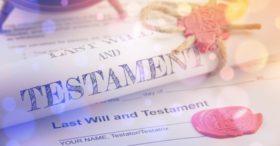Haste makes waste. Or, in the case of estate planning, it can lead to other problems and, possibly, financial loss. Notably, if you don’t take enough time to choose the best executor for your estate, this “wrong call” can cost your family.
Many responsibilities
You may think that there’s not much to the job, but an executor’s responsibilities are extensive. As your personal representative, he or she will be entrusted with several significant duties, including collecting, protecting and taking inventory of your estate’s assets; filing the estate’s tax return and paying its taxes; handling creditors’ claims and the estate’s claims against others; making investment decisions; distributing property to beneficiaries; and liquidating assets, if necessary.
Whom should you choose as executor? Usually, it comes down to a decision between a family member or close friend and a professional.
Your first thought might be to choose a family member or a trusted friend. But this may be a mistake for one of these reasons:
- The person may be too grief-stricken to function effectively,
- If the executor stands to gain from the will, there may be a conflict of interest — real or perceived — which can lead to will contests or other disputes by disgruntled family members,
- The executor may lack the financial acumen needed for the position, or
- The executor may hire any necessary professionals, but they might not be the professionals you’d hire.
To avoid these risks, you might instead consider choosing an independent professional as executor, particularly if the professional is familiar with your financial affairs.
Form a team of executors
Finally, it’s common to appoint co-executors — one person who knows the family and understands its dynamics and an independent executor with the requisite expertise. Whether you decide to use co-executors or only one, be sure to designate at least one backup to serve in the event that your first choice is unable to do so.
© 2021 Covenant CPA




